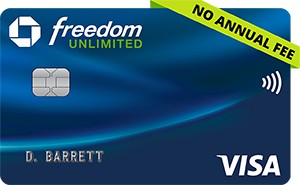Medical Credit Cards: Should You Use Them?
If you have ongoing or upcoming medical expenses, a medical credit card can help you finance those costs. As good as they sound, there’s a risk that using these types of credit cards can wind up costing you more than your original bill. And there’s a risk that your healthcare provider might push you to sign up for one of these financial products instead of telling you about financial assistance programs that they’re legally obligated to offer, or no-interest payment plans.
Before signing up for one of these cards, find out if you’re able to get financial assistance. You’ll also want to consider exploring options like payment plans through your medical provider, negotiating your bill, a low-interest personal loan or paying for your bills with a low- or no-interest APR credit card.
Medical credit cards explained
Medical credit cards are specialized credit cards offered through your medical provider to pay for specific health care costs from that provider.
What medical cards cover
Medical cards don’t always cover all medical services or procedures. Some may only cover in-hospital services and non-elective surgeries, while others are specific to more cosmetic and elective procedures. These cards are only accepted by participating medical providers and hospitals, which may accept one card but not another.
Applying for a medical credit card
You generally apply for a medical credit card where you receive healthcare (like at your doctor’s office, or a hospital) or in some cases, online. These cards typically require an application and may sometimes include a credit check. You can be denied if you don’t meet the credit standards, which depend on each issuer.
If you’re approved, check to see if the card information and payment history will be reported to one of the three major credit bureaus. Not all will; some will report only if you become delinquent and your account is sent to collections.
Dangers of medical credit cards
There are many risks that come with medical credit cards, including:
- Deferred interest: Medical credit cards sometimes offer deferred interest, which is similar to a 0% APR credit card, but there’s a catch. You’re only charged no interest if you pay your balance in full before the end of the promotional period. If not, the card issuer charges interest retroactively from the purchase date. That means you could pay off 99% of your bill and still have to pay all the interest on the full balance, from the time of purchase.
- Higher medical costs: If your provider knows you’re paying with a medical credit card, they might push you to get more expensive or additional procedures. According to the Consumer Financial Protection Bureau, at least one of these financial providers encourages medical offices to upsell customers on more or pricier services.
- Missing out on financial assistance: Depending on your income, you may qualify for financial assistance. Your healthcare provider might not tell you about financial assistance if they have the opportunity to sign you up for a medical credit card instead.
- Costly bills: Outside of promotions, medical credit cards tend to have high APRs. You may already have access to financing options — like loans or regular credit cards — that would cost less in the long run.
Compare medical credit cards
Medical credit cards aren’t as common as other types of credit cards. The two primary options for medical credit cards are the CareCredit® credit card and the Wells Fargo Health Advantage® Credit Card. Keep in mind that these cards may only be offered at select approved providers or work for specific medical procedures and expenses. Here’s a look at how these two medical credit cards compare.
| Medical credit card | APR | Deferred interest periods available | Can be used to pay for these services |
|---|---|---|---|
| CareCredit® credit card | 32.99% APR | 6-18 months | Chiropractic, cosmetic, day spa, dental, dermatology, hearing, primary care, urgent care, vision, veterinary, weight loss, and other health procedures |
| Wells Fargo Health Advantage® Credit Card | 12.99% | Varies by health care provider | Dental, hearing, vision, veterinary |
Medical cards often require that you repay the balance within a certain time frame, typically between six to 24 months, depending on the size of the balance. They also may offer no interest for this period.
The Consumer Financial Protection Bureau (CFPB) fined CareCredit $34.1 million in 2013 for deceptive card enrollment tactics that obscured the card’s deferred interest. Also, according to the CFPB, from 2018 to 2020, individuals paid over $1 billion in deferred interest on specialty medical credit cards or loans with deferred interest periods.
Do the math when it comes to deferred interest. Consider how many months you have to pay off the balance and whether you can make large enough payments to do so. If you’re not certain you can budget to pay off the debt before the end of the promotional period, look into other payment options.
Penalties
You should also know what other penalties you could incur. Typically, penalties for late payments are also severe on medical credit cards. After one missed payment, you’ll be charged a fee and may risk losing the promotional interest rate.
If you lose the promotional rate, interest will begin accruing immediately. Make sure you have a copy of the terms and conditions of the card before signing up. If you can’t get that information from the medical provider immediately, don’t sign up for a card until you have time to look at what you’re agreeing to.
Pay medical bills with a regular credit card
If you have enough available credit on a card with a low interest rate, consider using that for medical expenses.
If you have good credit, you might also consider moving the balance to one with a 0% APR on balance transfers for a limited time (usually 12 to 18 months). You could also open a regular credit card with an intro 0% APR for purchases and use that for the medical bills directly. Even if you can’t pay off the full balance before the intro period ends, interest won’t accrue during the promotional period.
Here are some suggestions if you’re paying medical bills with a credit card:
- Keep your balance at less than 30% of your limit, so you don’t hurt your credit score.
- If you don’t have a promotional period, make substantial monthly payments to prevent too much interest from accruing.
- Don’t use that card for other purchases until you’ve fully paid off your medical debt.
Best credit cards for medical bills
You can also earn rewards while you pay off your medical expenses. There are cash back cards that earn bonus cash back on spending at places where you might make medical or health purchases, like drugstores. Also, some rewards credit cards come with 0% introductory APR on purchases for extended periods, often a year or longer.
Intro offers are a great option if you have large upcoming medical expenses or purchases that you would like to finance over time without costly interest charges. If you can’t pay off your full balance before the end of the promotional period, you’ll be charged interest, but only on the amount you still owe.
Below are some of the best credit cards to consider for medical bills and expenses.
AARP® Essential Rewards Mastercard®*

How LendingTree Rates Credit Cards?
Our experts rate credit cards based on several factors including card benefits, bonus offers and independent research. Credit card issuers do not influence or have a say in our card ratings. Read our credit card methodology here.


How LendingTree Rates Credit Cards?
Our experts rate credit cards based on several factors including card benefits, bonus offers and independent research. Credit card issuers do not influence or have a say in our card ratings. Read our credit card methodology here.- Low spending requirement to earn sign-up bonus
- High cash back rates on drugstore purchases and medical expenses
- No annual fee
- No intro APR offer on purchases
- Target or Walmart purchases are not eligible for the higher cash back rate
The AARP® Essential Rewards Mastercard® isn’t the best card for everyone. However, this card is a great option for anyone who frequently spends money on medical expenses. AARP® Essential Rewards Mastercard® earns high cash back rates on eligible medical expenses and at most drug stores.
The card comes with a 0% introductory APR for the first fifteen billing cycles following each balance transfer that posts to your account within 45 days of account opening. After that, it will have a 20.99% - 29.99% Variable APR for balance transfers. Keep in mind that the balance transfer fee still applies during the intro APR period.
- Earn a $100 cash back bonus
- Earn unlimited 3% cash back on gas and drugstore purchases (excluding Target and Walmart)
- Earn unlimited 2% cash back on medical expenses
- $0 annual fee
Chase Freedom Unlimited®

How LendingTree Rates Credit Cards?
Our experts rate credit cards based on several factors including card benefits, bonus offers and independent research. Credit card issuers do not influence or have a say in our card ratings. Read our credit card methodology here.


How LendingTree Rates Credit Cards?
Our experts rate credit cards based on several factors including card benefits, bonus offers and independent research. Credit card issuers do not influence or have a say in our card ratings. Read our credit card methodology here.- Lengthy intro APR offer
- High cash back earning rates
- No annual fee
- No extra cash back for medical purchases
- Gas and grocery purchases made at Target or Walmart are not eligible for the higher cash back rate
There’s a lot to love about the Chase Freedom Unlimited®. It’s perfect for filling prescriptions and other drugstore purchases thanks to its bonus cash back rates. Cardholders also earn above-average cash back on all purchases, which means you’ll still earn a little more than you would typically expect on your medical expenses.
This card offers a 0% Intro APR on Balance Transfers for 15 months and a 0% Intro APR on Purchases for 15 months, which can be helpful if you have an upcoming medical expense you want to finance. After the promotional period is over, there will be a 18.24% - 27.74% Variable APR on balance transfers and a 18.24% - 27.74% Variable APR on purchases.
- Click APPLY NOW to apply online.
- Earn a $200 Bonus after you spend $500 on purchases in your first 3 months from account opening
- Enjoy 5% cash back on travel purchased through Chase Travel℠, our premier rewards program that lets you redeem rewards for cash back, travel, gift cards and more; 3% cash back on drugstore purchases and dining at restaurants, including takeout and eligible delivery service, and 1.5% on all other purchases.
- No minimum to redeem for cash back. You can choose to receive a statement credit or direct deposit into most U.S. checking and savings accounts. Cash Back rewards do not expire as long as your account is open!
- Enjoy 0% Intro APR for 15 months from account opening on purchases and balance transfers, then a variable APR of 18.24% - 27.74%.
- No annual fee – You won't have to pay an annual fee for all the great features that come with your Freedom Unlimited® card
- Keep tabs on your credit health, Chase Credit Journey helps you monitor your credit with free access to your latest score, alerts, and more.
- Member FDIC
- Rates & Fees
Citi Custom Cash® Card*

How LendingTree Rates Credit Cards?
Our experts rate credit cards based on several factors including card benefits, bonus offers and independent research. Credit card issuers do not influence or have a say in our card ratings. Read our credit card methodology here.


How LendingTree Rates Credit Cards?
Our experts rate credit cards based on several factors including card benefits, bonus offers and independent research. Credit card issuers do not influence or have a say in our card ratings. Read our credit card methodology here.- Lengthy intro APR period
- High cash back rates
- No annual fee
- There’s a cap on the highest cash back rate
- Balance transfer fee
If you spend considerable money in one area each month, the Citi Custom Cash® Card can help maximize your rewards-earning potential. You’re automatically rewarded with a high cash back rate in your top eligible spend category each billing cycle, up to card limits. You can earn on everyday spending, including buying medical supplies and paying for prescriptions at drugstores.
This card has a [coca name=’citi-custom-cash.Introbalancetransferapr’ type=’cards’] and a N/A. After the intro period is over, you’ll need to pay a 17.49% - 27.49% (Variable) APR on balance transfers and a APR on purchases.
- Earn $200 cash back after you spend $1,500 on purchases in the first 6 months of account opening. This bonus offer will be fulfilled as 20,000 ThankYou® Points, which can be redeemed for $200 cash back.
- 0% Intro APR on balance transfers and purchases for 15 months. After that, the variable APR will be 17.99% - 27.99%, based on your creditworthiness.
- Earn 5% cash back on purchases in your top eligible spend category each billing cycle, up to the first $500 spent, 1% cash back thereafter. Also, earn unlimited 1% cash back on all other purchases. Special Travel Offer: Earn an additional 4% cash back on hotels, car rentals, and attractions booked on Citi Travel℠ portal through 6/30/2026.
- No rotating bonus categories to sign up for – as your spending changes each billing cycle, your earn adjusts automatically when you spend in any of the eligible categories.
- No Annual Fee
- Citi will only issue one Citi Custom Cash® Card account per person.
Negotiate medical bills
Sometimes you can negotiate your medical bills to reduce the cost or create a payment plan. Most medical providers would rather get paid than send bills to collections and are often willing to work with patients.
What you can do before your medical or healthcare visit
- Contact your insurance company to ensure your visit is covered and the type of coverage you’ll receive.
- Request an estimate from the provider, especially if it’s a more expensive procedure or care.
- Find out if there’s any payment assistance you’re legally obligated to receive.
What you can do after your medical or healthcare visit
- Request an itemized bill from your provider, and review all the services they are billing you for. Billing advocates and health professionals have estimated that 75-80% of bills are inaccurate.
- Contact the provider’s billing department to negotiate your bill. Be upfront about your current circumstances. You are within your rights to ask your provider to lower your bill, although they are not required to do so.
- Ask if there are any available no-interest payment plans.
- Find out if there is any available financial assistance for your medical bills.
If you’re having a difficult time paying your medical bills, contact your provider before resorting to credit cards. You may lose the ability to negotiate your bill once you put the charge on a card.
Does medical debt affect your credit score?
Medical bills do not affect your credit score if you pay them on time. If you have unpaid medical debt that was sent to a collection agency, it could negatively affect your credit.
Even if your medical debt is sent to collections, you have time to act before it ever affects your credit. The three major credit bureaus offer some leniency when it comes to medical debt. Credit bureaus provide a 365-day window for you to revolve collections for medical debt before your account appears on your credit report. Also, as of April 11, 2023, medical collections under $500 no longer appear on consumer credit reports. This benefit does not apply to medical expenses paid with a credit card or medical credit card.
If you have unpaid medical bills in collections for longer than a year, they will show up on your credit report, potentially causing your FICO credit score to drop. VantageScore no longer includes medical debt in its calculations, but it’s still a good idea to take care of your bills as swiftly as possible to avoid potential issues.
Alternative financing options
Credit cards aren’t the only option for paying medical bills. If you aren’t able to take advantage of a promotional rate, credit cards represent the costliest option because they typically carry higher interest rates than other lending options. Consider the following alternatives if you have medical debt or bills you need to finance.
Loans
There are companies that specialize in medical loans, but all-purpose personal loans from your bank can also be used to pay medical bills. These require a minimum credit score, typically a 600 to 640 FICO Score, although some lenders will accept scores as low as 580.
Generally, higher credit scores mean a lower interest rate. Rates on unsecured loans typically range from 6% to 36% and are generally fixed. The installment payments make paying back the loan easier — as long as you stick to the schedule — but you still have to pay interest on the amount you borrowed, making the overall cost of your medical procedure more expensive.
Home Equity
If you own a home and have good credit (670 FICO Score and above), consider tapping any equity that has built up over the years for the funds by getting a home equity loan, a home equity line of credit (HELOC), or cash-out refinance. These may offer rates between 4% and 7%, lower than even the best rates on personal loans. Don’t forget to factor in any closing costs when making a decision.
Retirement Savings
Some 401(k) plans allow you to take hardship withdrawals or loans against your savings for medical bills. You can also take early withdrawals from traditional and Roth IRAs to pay for unreimbursed medical expenses. To avoid the tax penalty when you withdraw early, the unreimbursed medical expenses must exceed 10% of your adjusted gross income.
If you go above this amount and you’re under 59½ years old, your withdrawal will be subject to a 10% penalty tax.
Payment assistance
If you’re uninsured or have a lower income, some hospitals have charitable funds that can help with payments. You might also be able to set up an extended payment plan with your medical provider that charges little to no interest.
Other options
Try to negotiate a lower charge or look for another provider that will charge less for the procedure. Use Healthcare Bluebook or New Choice Health to compare medical costs.
If you have some advance notice for pricey medical procedures, increase pre-tax contributions to your Flexible Savings Account (FSA) or Health Savings Account (HSA) to help pay for the costs.
The information related to the CareCredit® credit card, Wells Fargo Health Advantage® Credit Card, AARP® Essential Rewards Mastercard® and Citi Custom Cash® Card has been independently collected by LendingTree and has not been reviewed or provided by the issuer of this card prior to publication. Terms apply.
The content above is not provided by any issuer. Any opinions expressed are those of LendingTree alone and have not been reviewed, approved, or otherwise endorsed by any issuer. The offers and/or promotions mentioned above may have changed, expired, or are no longer available. Check the issuer's website for more details.


